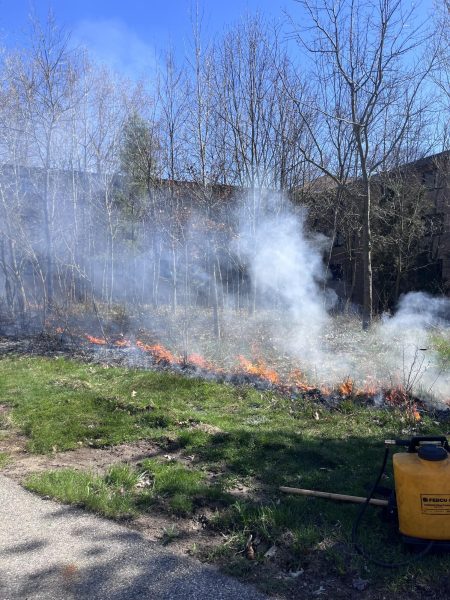Fight the New Drug presents at Calvin
This is a photo of a computer user.
Porn was the subject of Fight the New Drug’s presentation Tuesday, October 1. Fight the New Drug is a non-profit organization that aims to educate the public on the danger and harm pornography poses to society.
Founded in 2009, FTND is a non-religious and non-legislative organization fighting back against the idea that porn is harmless entertainment. Using facts, studies and personal accounts, the organization travels across the United States to spread its message and help those struggling with porn addiction.
Two years ago, the former Sexuality Series Coordinator, Julia Smith, booked FTND as part of the Sexuality Series at Calvin. Pastor Mary Hulst said, “One of the big things for the Sexuality Series is an anti-porn presence on campus.” And that’s exactly what FTND seeks to provide. With over 1,000 presentations nationwide and reaching over 800,000 people so far, the organization was booked again for this year and Hulst plans to continue having them at Calvin every other year. Hulst continued, “This time we’ve invited everybody from public schools, to Christian schools, to youth workers because it’s not explicitly faith-based. It’s affecting everyone.”
The presentation focused on three main points where porn apparently hurts the most: brain, heart and world. Landon Lambert, the presenter for FTND, explained that our brains have reward pathways that activate when we see or experience something we enjoy. As we continue to consume what we enjoy, our brains wire themselves to crave it. Porn alters the way our brains are wired and “mirrors drug addiction,” as Lambert stated. Porn can serve as a “straight jacket on our minds” and keep us from escaping.
Lambert went on and explained how relationships are harmed by porn consumption. Porn erodes the satisfaction we find in personal relationships and intimacy, according to Lambert. According to Lambert, it creates an exaggerated version of sex that is unobtainable and creates resentment between partners. The user will begin receiving more pleasure and satisfaction from watching porn than being close or intimate with those around them.
Furthermore, Lambert said the statistic that “88 percent of porn portrays violence against women.” He said that porn creates and enforces the idea that “sex and violence go together.” With the availability of porn ever increasing, Lambert and FTND want to increase awareness to the dangers that arise from consuming this product.
At the end of the presentation, Lambert went on to give a brief account of his own struggles with porn addiction. He first encountered it at 12 years old and as he grew into his teens, he slowly lost his control over it. “I finally reached out and got help from family and professionals,” Lambert said. FTND understands that porn addiction can feel embarrassing and isolating, but encourages anyone struggling to reach out because help is readily available. In the words of Hulst, “Everyone needs to know there is hope… this doesn’t have to be how your story goes.”







